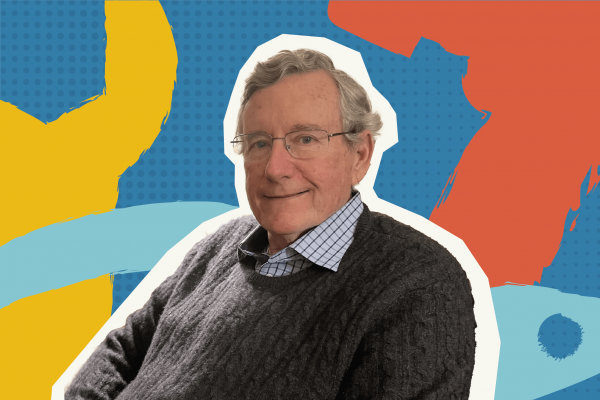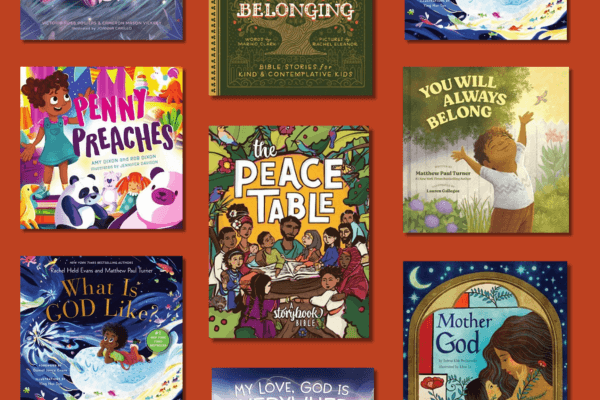Not long ago, a young man stopped me after a sermon and asked a direct question: Is a contemplative life even possible in 21st century America?
He deserved more of an answer than I gave him. His question brought me back to the life and witness of Thomas Merton, who died 49 years ago yesterday. I sadly don’t have the young man’s address to follow up with him in person, but in memory of Merton, and in gratitude for the challenge, here’s my open letter to this young man and his question.
Dear Ben,
I know it has been a while since we met, but I’m writing because I’ve been seeing your face when I close my eyes. I recall how you stood half-apologetically at the back of a post-sermon greeting line. You lingered until the crowd was gone, asking if I had time. You’d come seeking a word.
The way your face looked at that moment is how it is etched in my memory, your question written in your gaze: Could a young married man like yourself live a contemplative life in 21st century America? You wanted to know what it might look like in practice.
I’m sorry that I don’t remember what I said. It couldn’t have been much — you thanked me and left in time for me to make it to lunch. But now in the quiet of prayer, you are with me. And this is prayer, I think — paying attention long enough to see what rises to the top. You are here because you are, in some way, a mirror — an image of my own desire that brings me back to prayer, again and again.
The Psalms teach, “As the dear longs for living waters, so my soul thirsts for you, O God.”
Every hunger and love and longing I’ve ever felt ultimately points me toward God, my heart’s true home. And in a sense, the contemplative life you asked about is as natural as a deer bowing its head to drink from a stream. But you wanted to know whether it is possible for you. Which is to say, you know something about how difficult is it to become yourself in this world.
In the last century — the one in which both you and I were born — the most popular spiritual writer in America was a man named Thomas Merton. Like you, he realized in early adulthood that everything around him was shouting, in no uncertain terms, that he should want the very things which got in the way of what he had begun to sense his heart really wanted. “We live in a society,” Merton wrote, “whose whole policy is to excite every nerve in the human body and keep it at the highest pitch of artificial tension, to strain every human desire to the limit and to create as many new desires and synthetic passions as possible, in order to cater to them with the products of our factories and printing presses and movie studios and all the rest.”
We call this system we have created “advanced capitalism,” and we often celebrate its seemingly miraculous capacity for creative destruction and limitless growth. But modernity has its downside, and Merton learned to see it clearly — first from his father, an artist who despised bourgeois values, and later from communists, who emerged from capitalist society’s internal contradictions.
Thomas Merton was an intelligent man, who trusted reason as far as it could take him. But his own mind told him that an aesthetic sensibility and a good critique of the status quo was not enough to save the world from the mess we are in. It was, after all, not enough to save him from himself.
This capacity to get beyond our self-deception — to see that the evil of the world is rooted in our own hearts — is the first gift that leads us toward contemplation. I’m not sure any of us can come to this on our own. “We only know sin on the way out,” the theologian Karl Barth said.
As we face the 21st century realities of ISIS-backed terrorism and reactionary Christian nationalism, we are grappling with the nature of evil, as Merton and others did in the late 1930s. Given the similarity of our contexts, Merton’s insight is prescient. "There was something else in my own mind,” Merton wrote as he watched World War II coming, “the recognition, 'I myself am responsible for this. My sins have done this. Hitler is not the only one who has started this war: I have my share in it too.'"
If my inner life is as messed up as the obviously broken world around me, your question carries all the more weight: Is a contemplative life even possible?
Because Merton had the vocation of both a contemplative and a writer, we have in his writing a record that might serve as a geography of your question. I hesitate to try to sketch some kind of path for you on top of Merton’s cartography, which is so intimate, so personal, so inevitably particular. But Merton was always holding his own contemplative journey alongside the written record that preceded him — St. John of the Cross, St. Bernard, the Cloud of Unknowing and the Little Flower. We do not need roadmaps on this journey so much as fellow travelers.
So, a few directions from one who traveled this way before us:
If the source of our problem is at our core, Merton saw, we need nothing short of an inner apocalypse to open a way toward true contemplation. “Our desire for God must come from God and be guided by his will before it means anything in the supernatural order,” he wrote. In essence, we must be born again.
How does this happen? The desire driving your question is itself a sign that God is at work. God grows us up into Christ by forming our hearts in the psalms. Like a fitness enthusiast enjoying a runner’s high, Merton delighted in the psalms after his conversion, carrying his Breviary everywhere he went and making the world his monastery.
Once he’d settled down into the rhythms of life at Gethsemani, the Divine Office often felt like a burden to him. He so wanted to be alone. Only obedience kept him coming back to sing the psalter seven times a day.
Then, one day some eight years in, a revelation: “This is the secret of the psalms. Our identity is hidden in them. In them we find ourselves, and God. In these fragments he has revealed not only Himself to us but ourselves in Him.”
So make time for the psalms, learn to sing them, and keep following their path, even when you no longer want to. Merton’s experience echoes millennia of monastic wisdom: God wants to shape our desires as we make the words of the psalms our own.
If we follow this path, where can we expect it to take us? Merton knew that the contemplative life is as concrete and practical as a daily rhythm, as keeping promises to particular people, as the words of psalms passed down to us.
It is simple, as he often wrote, but it is not easy. Some practical formation, like psalms and obedience, is essential. But Merton also knew the temptation to overdetermine our understanding of the path laid out before us. “O Lord, I don’t know where I’m going,” he famously prayed. And this is, perhaps, his best summary of what the contemplative life feels like in practice: We must, each of us, give up the false notion that we could be more contemplative if we were somewhere else, if we were surrounded by other people, if we weren’t the poor and broken souls that we are.
The contemplative life is fundamentally practical. It must be lived, and with our whole selves. But we do not arrive at contemplation by mastering some technique. We come by way of simplicity.
Merton may have said it most clearly when he wrote: “What I wear is pants. What I do is live. How I pray is breathe.”
Is this even possible? Thank you for asking. Merton lived the question, and my sense is that you and I are called to live it with him. Can we live it in hope that the answer is yes? Not just in general, but for us, here and now?
The words of our Lord are the best answer we have:
“With people this is impossible, but with God all things are possible.” (Matt 19:26)
Trusting with you, Ben,
Jonathan
Got something to say about what you're reading? We value your feedback!







